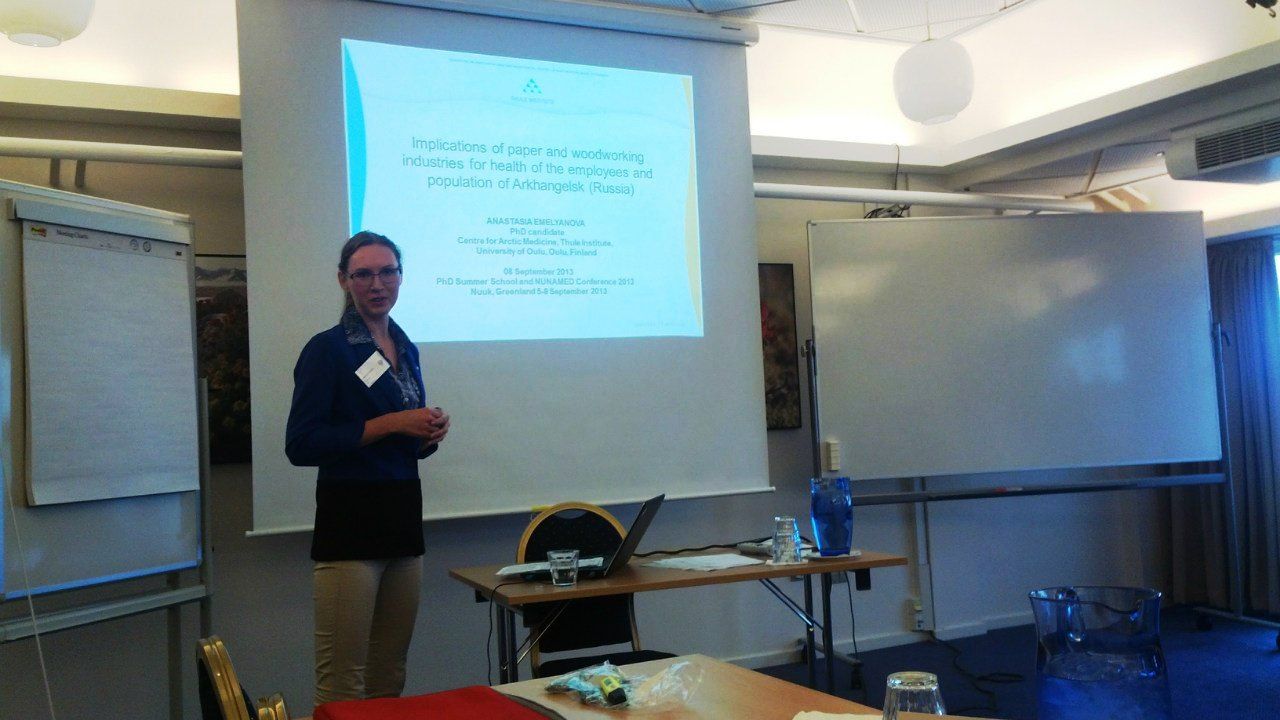When writing a PhD thesis on demography of population aging and social policy regarding the growing number of elderly people in the Arctic, it would seem rather weird to take part in a PhD summer school devoted to health, society and environment in relation to large-scale industrial projects. But I was a part of it due to several reasons.
At some point, you start to understand that it is very important to be open to wider knowledge coming your way to become a ‘widely thinking’ researcher; to pay attention not only to your very specific research object but to evolve an understanding of a paradigm of system changes and correlations. Increasing collaboration between University of the Arctic member institutions is the reason behind more and more opportunities for doctoral students: summer schools, workshops, and conferences of such holistic and interdisciplinary nature. Why could I not address issues I would like to learn more about beyond my dissertation topic and within a wider field of science? Being interested in population and health related studies, I definitely wanted to learn more about industries and their influence in the environmental and human health, as my home city Arkhangelsk in Russia suffers a lot from local factories, in addition to the obvious economic benefits.
 I did a complementary study on the implications of paper and woodworking industries (most prominent economically and therefore growing in scale in the city) for environmental and human health in Arkhangelsk to present to the PhD students and distinguished experts/teachers in Nuuk, Greenland. This way I managed to discuss prospects for the analysis and, in addition to that, get qualitative feedback on the general direction of my studies and on methodological challenges. As expected, this summer school resulted in getting acquainted with a specific, Greenlandic perspective on Arctic issues, especially health and wellbeing; varied networking; fruitful research discussion; and, as such, significant academic growth.
I did a complementary study on the implications of paper and woodworking industries (most prominent economically and therefore growing in scale in the city) for environmental and human health in Arkhangelsk to present to the PhD students and distinguished experts/teachers in Nuuk, Greenland. This way I managed to discuss prospects for the analysis and, in addition to that, get qualitative feedback on the general direction of my studies and on methodological challenges. As expected, this summer school resulted in getting acquainted with a specific, Greenlandic perspective on Arctic issues, especially health and wellbeing; varied networking; fruitful research discussion; and, as such, significant academic growth.To give a short feedback on the school location, Greenland is a land very unique in many respects, and its uniqueness experiences hardships due to the growth of extractive industries, which is also the case for many other places in the Arctic. Therefore, the school location was chosen so as to best address the topic in question. The country perceptions towards understanding the circumpolar world as well as the ‘self-being’ of northern people are different from a Scandinavian point of view, which was also important to learn in terms of my work in Arctic health sciences.
Thank you one more time for this travel support!
Anastasia Emelyanova
PhD student, Centre for Arctic Medicine, Thule Institute, University of Oulu, Finland
* * * * * * * * *
MobilityDK is a pilot model for providing financial support for teacher, researcher and student exchange. MobilityDK is a part of the UArctic Danish Mobility Project, the goal of which is to support mobility for the Kingdom of Denmark’s Arctic education activities, and mobility from the Kingdom of Denmark to Arctic educational activities in different areas of the Arctic through the UArctic network. The program is supported by the Danish Agency for Science, Technology and Innovation.
